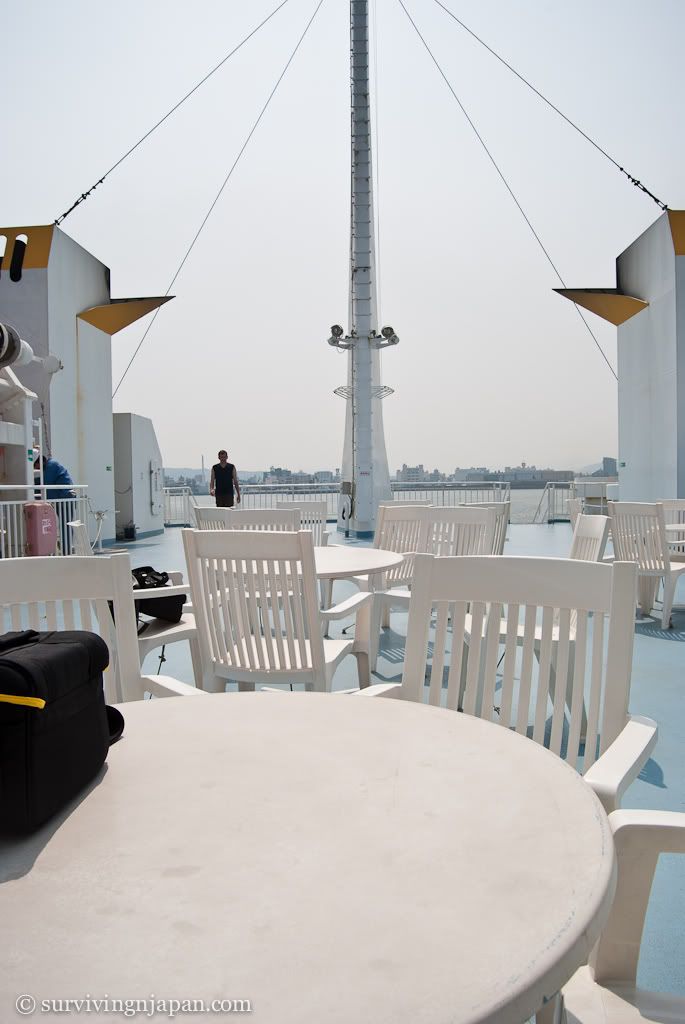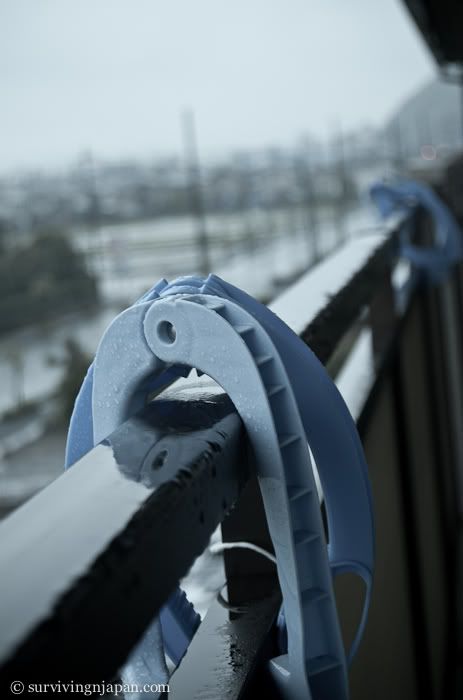 |
| Living area of a share house in Japan. Photo provided by Tokyo Sharehouse. |
For some folks, finding a place to live in Japan can be a challenge, particularly if you don’t speak Japanese fluently. I’ll be addressing this more in the coming months in terms of finding and renting an apartment (less than a week until we move!), but today I’d like to introduce a potential option (and Surviving in Japan’s July sponsor) that might appeal to some of you: living in a share house.
The basic concept of a share house is similar to dorms, some hostels, or sharing an apartment or flat with someone (or a few people) in western countries. Several people live together in the same house or apartment and share common areas like the kitchen, living room and bathrooms, but have some private space, such as, at the very least, a bedroom.) One difference about share houses as opposed to other types of room sharing is that there is a management company and/or administrator involved, so you have someone to go to with problems that you can’t or don’t want to discuss with your roomies.
Some of you might be thinking of the “gaijin houses”, which are share houses for foreigners living in Japan. This term is still used, and there are share houses that still fit this term, but more Japanese people have been staying in share houses over the years so “share house” or “guest house” are becoming more commonly used.
Share houses in Japan can be quite basic or on the more luxurious end of things (as you can see from the pictures in this post), depending on the house, and rooms are typically furnished with a bed, air conditioner, television, small fridge and desk.
 |
| A standard bedroom in a share house. Photo provided by Tokyo Sharehouse. |
Who are share houses for?
Share houses host a variety of people, although they are most popular with students and working adults in their 20s and 30s. The average length of stay is anywhere from one month up to one year. This is helpful if you only plan to be in Japan a short time, but not so short that you want to live out of a hotel, whether for school, a long trip or if you’re completely new to Japan and don’t want to live by yourself in an apartment in those first weeks or months.
A share house might also be a good fit if you’re a people person and enjoy socializing, like taking part in events and/or parties, and it can also provide a chance to immerse yourself in Japanese.
Why live in a share house?
Aside from the social aspects and emphasis on community, a share house can be more budget-friendly, as they don’t usually require deposits, key money and/or other initial fees that many apartments in Japan do. This does depend, though, as we found when searching for our new apartment. Although if a share house requires these fees, they will probably be relatively low.
Costs depend on the house you stay at and where it’s located, so obviously a house in or near the center of Tokyo will generally be more expensive than those farther away (with some exceptions, particularly if you are willing to teach English once or twice a week). So you might pay as low as 30,000 yen a month or up to 80,000 yen a month (in the greater Tokyo area).
 |
| Dining and Living area in a share house. Photo provided by Tokyo Sharehouse. |
You also don’t always need a guarantor, as you often will when renting an apartment in Japan. We didn’t need a guarantor for our apartment, but they asked us to list some “emergency contacts” here in Japan, basically to take care of our stuff if we just up and leave the country with no notice (more on that in a later post). It is possible to hire a guarantor company, but this adds on more expenses.
Of course, share houses aren’t for everyone, such as families with children or if you’re more introverted and don’t prefer to socialize at home. If you have any issues sharing with others (showers, kitchen, etc.) or just prefer to have everything to yourself, then a share house probably isn’t a good option for you.
They also aren’t necessarily available everywhere, so you may be limited to the major cities. If you plan to live in Tokyo, for example, it’s no problem, but if you want to live out in the countryside, you may want to look into other options.
OK, this might be a good option for me. How do I get started?
One way is to search around online. There are quite a few results in English, although you’ll probably find more options in Japanese (シェアハウス in Japanese, but you can also search for room shares and similar terms).
Also, some companies are able to promote themselves more heavily to the English-speaking community than others, such as the bigger chains (due to the language barrier), so you might miss out on finding the many other houses that exist.
Another option is Surviving in Japan’s July sponsor,
Tokyo Sharehouse, which fills the gap for non-Japanese speakers by helping them to find share houses in the greater Tokyo area, including Kanagawa, Saitama and Chiba (with plans to expand to other areas of Japan in the future). They also act as an intermediary if the share house management can’t communicate in English (at no charge to you).
Otherwise, all you typically need to stay in a share house in Japan is ID, your passport, a current visa and of course, money.
 |
| Bedroom at a share house. Photo provided by Tokyo Sharehouse. |
Tokyo Sharehouse’s website also has a helpful FAQ regarding share houses in Japan.
So tell us, have any of you ever stayed at a share house? If so, what was your experience like?
***
This post was brought to you by Tokyo Sharehouse, a portal site devoted to making it easier for non-Japanese speakers to find share houses in the greater Tokyo area. Many thanks to them also for providing share house information and photos for this post.


























